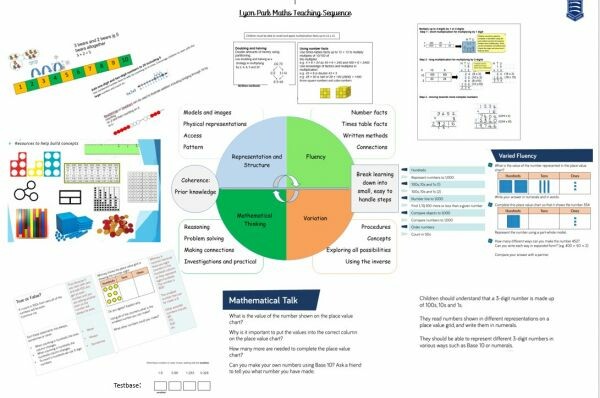Mathematics
AIMS
At our school, Mathematics enables our children to become numerate, creative, independent, inquisitive, enquiring and confident. We also aim to provide stimulating learning environments and resources so that children can develop their mathematical skills to the full.
The aims of Mathematics at Lyon Park are to enable children to:
-
have a well-developed sense of the size of a number and where it fits into the number system
-
demonstrate fluency with number facts such as number bonds, multiplication tables, doubles and halves
-
calculate accurately and efficiently, both mentally and in writing and paper,
-
draw on a range of calculation strategies
-
make sense of number problems, including non-routine/’real’ problems and identify the operations needed to solve them
-
explain their methods and reasoning, using correct mathematical vocabulary
-
use a range of different representations to demonstrate and support their understanding
-
judge whether their answers are reasonable and have strategies for checking them where necessary
-
suggest suitable units for measuring and make sensible estimates of measurements
-
explain and make predictions from the numbers in graphs, diagrams, charts and tables
-
develop spatial awareness and an understanding of the properties of 2d and 3dshapes
INTENT
At Lyon Park Primary School, we believe that Mathematics equips children with unique sets of tools to understand and change the world. These tools include logical reasoning, problem solving skills and the ability to think in abstract ways. It also provides children with the backbone to many other subjects, especially the STEM Sciences. Mathematics is important in everyday life. It is integral to all the aspects of life and with this in mind we endeavor to ensure that children develop a positive and enthusiastic attitude towards Mathematics, and in turn become competent and independent mathematicians.
IMPLEMENTATION
We follow the Mastery approach to the teaching of Mathematics (see diagram below). At the centre of this approach is the belief that all children have the potential to succeed. We use the White Rose Maths schemes of learning as a starting point, which breaks down objectives into small steps. This allows teachers to plan lessons that build a conceptual understanding which will enable children to apply their mathematics in different situations. For our children, mathematical talk develops their ability to articulate, discuss and explain their thinking. This approach is inclusive to include all children.

EYFS
Our Mathematics curriculum in the EYFS provides frequent and varied opportunities for children to learn mathematical vocabulary, knowledge and skills through practical based activities and play based learning. The focus is on developing a strong grounding in number and spatial awareness.
Mathematical understanding is developed through carpets sessions and small group learning. Stories, songs and rhymes also help our children to develop a strong sense of number.
In KS1 and KS2 the following will be implemented:
-
Teachers will teacher a daily Maths lesson following the White Rose scheme of work.
-
Each lesson focusses on one clear learning objective taken from the White Rose schemes of work. Other resources may be used to incorporate the Maths Mastery model
-
Each lesson sequence includes elements of: fluency, to practise skills; reasoning, to deepen understanding; and problem solving, to apply skills
-
Teachers will differentiate their questioning and activities to ensure provision for all the pupils.
-
All classrooms have maths displays with key vocabulary clearly displayed.
Organisation:
-
Every classroom has a range of practical apparatus to support children’s learning, with additional resources stored centrally
-
Each class has a Maths Working Wall which is updated regularly
IMPACT
Assessment:
Daily Assessment
Assessment is an integral part of teaching and learning and is a continuous process. Teachers make assessments of children daily through;
-
regular marking of work
-
analysing errors and picking up on misconceptions
-
making observations
These ongoing assessments inform future planning and teaching. Lessons are adapted readily and short term planning evaluated in light of these assessments.
Summative assessment
Teachers are expected to complete target tracker for each child termly. Their judgements will be informed by classwork, end of term tests.
At the end of Keys Stage 1 and Key Stage 2 children will undertake assessments each half term.
Please see links below for further information.

